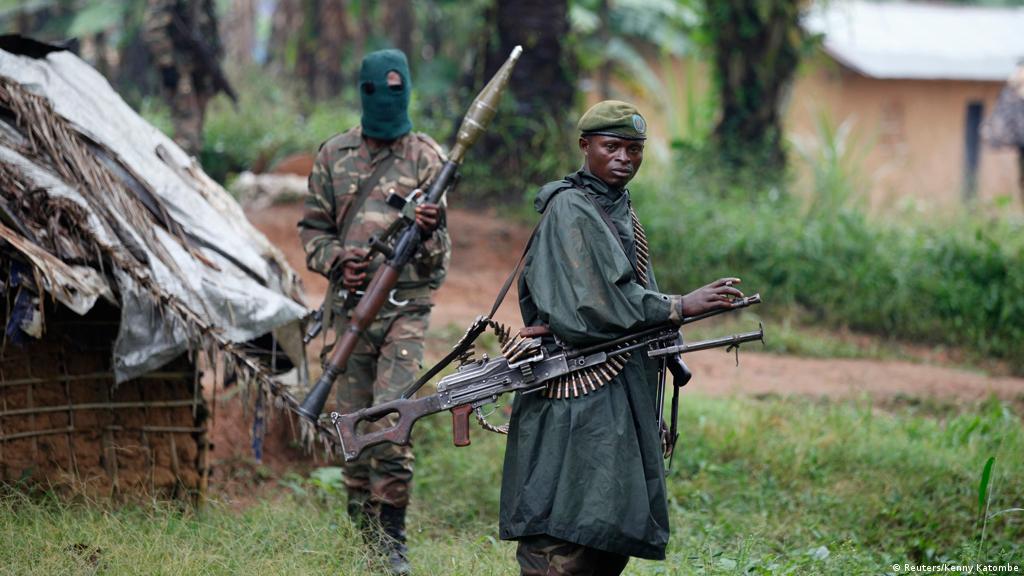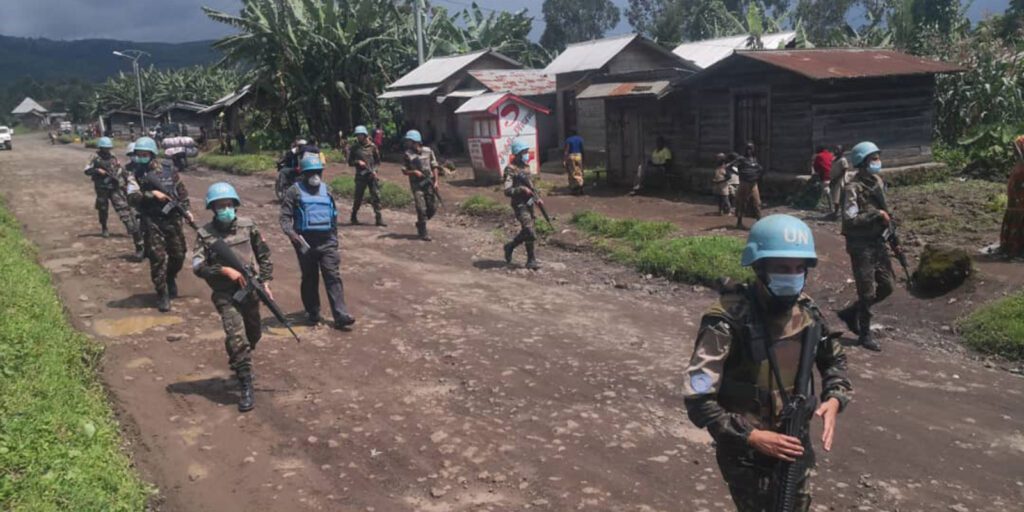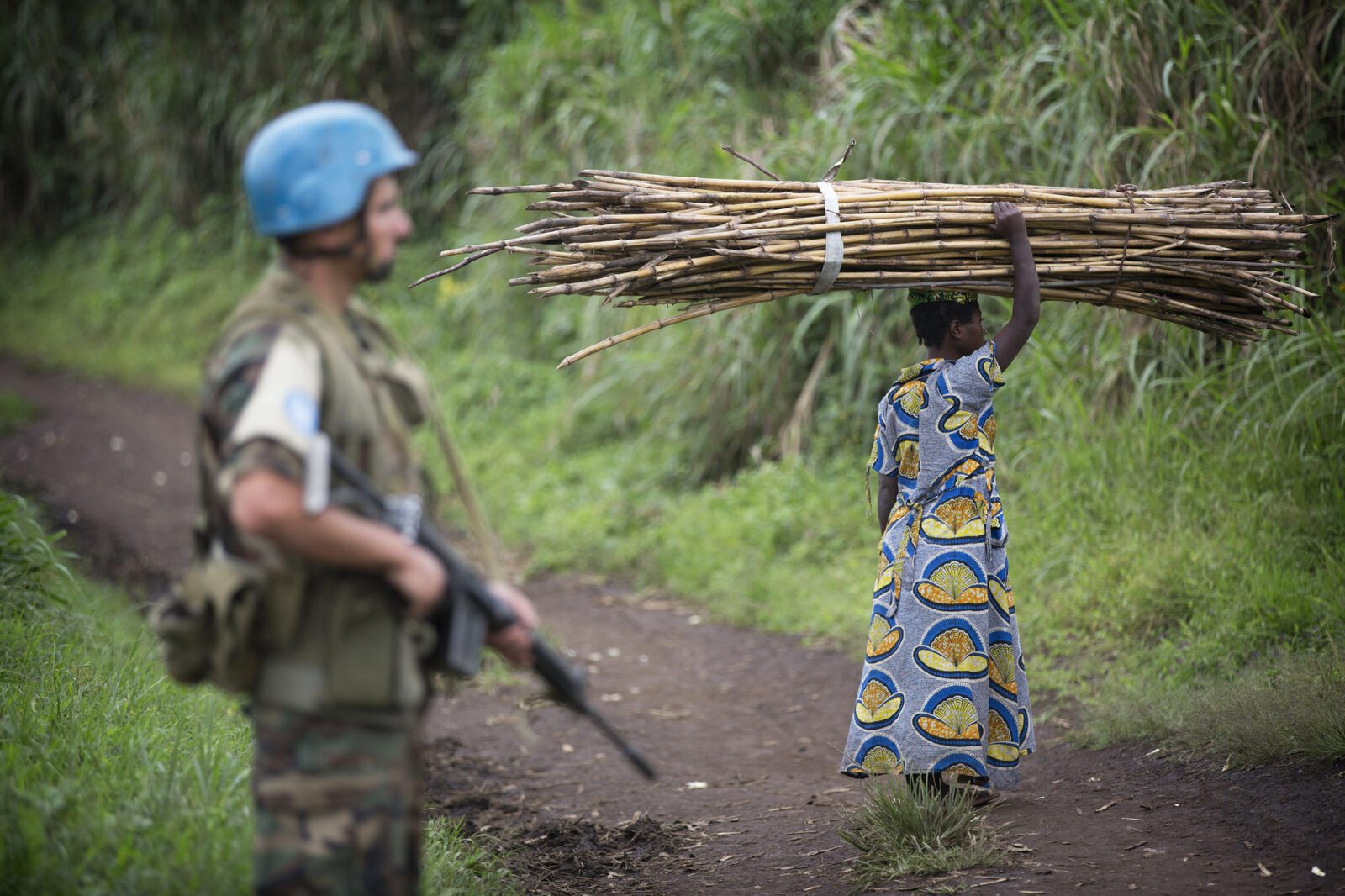Cap Camila de Almeida Paiva
The noble mission of protecting civilians in areas of armed conflict is facing challenges of an increasingly dangerous nature, both for the already naturally vulnerable civilian community and for the peacekeeper himself in the field. The origin of the threat, which until then was somewhat known and had a certain pattern of action in some African countries, including Early Warning Systems (tools of the peace mission that provide signals that some hostile intent against civilians is occurring or about to occur), is now becoming increasingly widespread, dispersed, unexpected, deadly, and unjust.
This scenario directly impacts the credibility and ability of missions to fulfill their mandates, causing civilian and blue helmet casualties and provoking the local population to react negatively against the presence of that mission. However, we cannot say whether or not there is an intentional behind-the-scenes objective. We can only observe, in the international media, the negative repercussions and the erosion of the Organization’s image in UN peacekeeping operations around the African continent.
Let us take as an example for this article the Democratic Republic of Congo, where MONUSCO (United Nations Stabilization Mission in the Democratic Republic of Congo) is located. MONUSCO, which replaced the former MONUC (United Nations Mission in the Democratic Republic of Congo), has been on Congolese territory since July 1, 2010, in accordance with UN Security Council Resolution 1925[1].
Its predecessor operated in that country from November 30, 1999, under UN Security Council Resolution 1279, until it was given a new nomenclature and additional tasks[2]. With these extra missions, we can say that MONUSCO became more robust in equipment, personnel deployed, and financial contribution, reflecting the new stage that the operation had just entered. In this phase, the mission received official authorization to use all necessary means to fulfill its mandate, especially regarding the Protection of Civilians, among other objectives[3].
We can infer that this decision has its roots in the historical events in which the image and role of the United Nations was questioned in relation to the inaction of the blue helmets on the ground during the genocides in Rwanda in 1994 and Srebrenica in 1995, events that led to the death of thousands of people. Thus, the imperative need arose for the Organization to prepare itself to avoid a repetition of those events, which we must not forget.
Since then, MONUSCO has sought to fulfill its mandate, facing numerous criminal challenges, making use of warning systems to plan ways to dissuade armed groups from interrupting their intentions, and fighting hostilities against the civilian population. The feared armed group M23, whose name was created on March 23, 2009, the date on which a peace agreement was to be signed with the Congolese government in Kinshasa[4], the country’s capital, was disbanded a few years ago.
This rebel group, composed of former members of the Congolese National Army, caused the death of hundreds of civilians, spread terror (mainly in the eastern Congolese provinces), caused the flight of thousands of people, and committed atrocities in clear violation of human rights and international humanitarian law. Among the actors who succeeded in dismantling the group, we can say that MONUSCO played a key role, with the Brazilian general Carlos Alberto Santos Cruz leading the military component between 2013 and 2015, and other Brazilian generals who succeeded him.

However, despite some containment of the country’s main armed group, which at one point declared that its actions would be merely political, hundreds of other rebel groups continued to operate, with civilians as their main targets. In addition, MONUSCO is facing another delicate moment in its existence this year, as there is currently discontent and a Congolese popular outcry demanding the immediate withdrawal of the mission from that territory, on the grounds that it has proven ineffective in protecting civilians, especially in the east of the country, in the Great Lakes region, and against the resurgence and strengthening of M23.
The area that comprises the Great Lakes is rich in minerals and borders several countries, including Uganda and Rwanda. There are reports that the Ugandan armed group ADF, the French acronym for Allied Democratic Forces, has been operating beyond the Ugandan border and has a strong presence in eastern and northeastern Congo against the civilian population, clearly circumventing international laws, using terrorist tactics, and committing crimes against humanity. Security Council Report 479 of July 2022 states that this group has links to the Islamic State in Central Africa5 and has been using improvised explosive devices in urban centers in and around the Congo, including suicide bombers. The criminal actions against civilians are getting better and better.
As if this were not enough, there is another threat to civilians coming from Rwanda: the support for the re-equipment of M23 by former fighters who fled to Rwanda in search of shelter by recruiting people, including minors, to act as fighters in Congolese territory. Remembering that the horror that occurred in 1994 in that country is still supported by some elements of the Hutu ethnic group that are currently crossing the border into the Congo, also targeting the Tutsi civilian population and moderate Hutus who managed to escape into Congolese territory.
This makes it possible to observe the delicate moment that MONUSCO is going through. Besides the casualties of its personnel (three blue helmets were killed and others wounded in recent confrontations)6, the mission’s leadership has also suffered from the fake news constantly disseminated to the population against the UN’s actions, which had its spokesperson in the Congo expelled from the country after a public statement whose words were seen as “impolite and inappropriate “[7].

This fact has further strengthened the demand for the immediate withdrawal of the mission, and its definitive end, with the minimum conditions required by the United Nations to leave the country, is planned for the end of 2024[8]. The prompt and correct use of strategic communication can be a palliative factor that may provide the mission with a lifespan. Just as the former commander of the military component of MONUSCO, Brazilian General Augusto Costa Neves, stated that “there is no purely military solution” to the conflict in the Congo, so did the senior researcher at the South African Institute of International Affairs, Gustavo de Carvalho, in a recent interview, that “the ability not only to resolve militarily the issues that are happening, particularly in the east of the country, but to engage more effectively in political discussions “[9].
These observations lead us to reflect on the role of other actors involved in the protection of civilians and the idealized stability of that country, whether Congolese or foreigners. It is important to note that Congo has witnessed the presence of the United Nations on its territory since 1999.
However, there are questions hanging in the air: How long will MONUSCO endure this pressure? How to stop the increasing terrorist attacks in the region? What is the interest behind these actions? How can the most vulnerable be protected? Will there be political support from surrounding countries in the fight against terrorists, in addition to the East African Regional Forces?
How will coordination between MONUSCO and these Regional Forces take place, since there is no subordination between them? Does the MONUSCO Intervention Brigade have the capacity to fight terrorism? How to ensure the safety of the blue helmets who are on the front lines? How can the morale of the troops be kept high? Will there be an adjustment in the training of future blue helmets focused more on terrorism?
The next commander of the military force of the peace operation in Congo, the Force Commander, who may continue to be a Brazilian officer, will certainly have an even greater challenge than his predecessors due to the current “high temperature” on the ground, which apparently will not be appeased any time soon.
The anti-UN sentiment, which strongly contributes to the popular demand for the withdrawal of the mission, the propaganda of those who caused this environment of hostility and instability and their vested interests in this withdrawal of peace troops, the close links with openly terrorist groups operating in Africa, which do not use the rules of fair combat, bring more obstacles to the already difficult, and in Congo today almost impossible, task of protecting civilians within this growing scenario of terror.

[1] Available at: https://peacekeeping.un.org/en/mission/monusco accessed on: 20 Sep. 2022.
[2] Available at: https://peacekeeping.un.org/mission/past/monuc/ access on: Sep. 20, 2022.
[3] Available at: https://peacekeeping.un.org/en/mission/monusco access on: 20 Sep. 2022.
[4] Available at: https://www.dw.com/pt-br/governo-do-congo-anuncia-vit%C3%B3ria-sobre-os-rebeldes-da-mil%C3%ADcia-m23/a-17205441 access on: 20 Sep. 2022.
[5] Available at: https://documents-dds-ny.un.org/doc/UNDOC/GEN/N22/338/70/PDF/N2233870.pdf?OpenElement access on: 20 Sep. 2022.
[6] Available at: https://press.un.org/en/2022/sc14985.doc.htm access on 20 Sep. 2022.
[7] Available at: https://noticias.uol.com.br/ultimas-noticias/rfi/2022/08/10/tensoes-no-congo-mostram-fragilidade-de-operacoes-de-manutencao-da-paz-da-onu-diz-pesquisador-brasileiro.htm access on 20 Sep. 2022.
[8] Available at: https://www.reuters.com/world/africa/congo-reassess-un-withdrawal-plan-after-deadly-protests-2022-08-02/ access on 20 Sep. 2022.
[9] Available at: https://g1.globo.com/mundo/noticia/2022/08/10/tensoes-no-congo-mostram-fragilidade-de-operacoes-de-manutencao-da-paz-da-onu-diz-pesquisador-brasileiro.ghtml access on 21 Sep. 2022.
About the author:
Cap Camila de Almeida Paiva – Captain QCO Camila de Almeida Paiva, has been an instructor and Civilian Protection Focal Point for the Joint Center for Peace Operations of Brazil (CCOPAB) since 2017. She completed her military training at the Army’s Complementary Training School in 2010 and at the Officer Improvement School in 2018. The officer has experience in UN Peace Operations (MINUSTAH, 2014) and courses in the area, such as: Protection of Civilians (India), Civil-Military Coordination (Germany), Gender Advisor (Sweden). He participated in Exercise Viking 2018 and 2022. Currently, she is part of a UN team revising the Manual for the Protection of Civilians. She is a post-graduate student in International Relations and holds an English proficiency diploma from the University of Cambridge (CPE).
*** Translated by the DEFCONPress FYI Team ***
